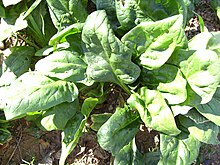Kroger Recalls Fresh Spinach

The spinach is thought to be infected with listeria. It was their Fresh Selections Tender Spinach sold in 10 oz. bags which had a use by date of 9/16/ 2012. This spinach was sold in 15 states. You can return the spinach to Krogers for a full refund. For information on which stores were effected go to Kroger.com on there service page.
This recall points out one major problem with recalls on produce. This recall was issued on the 9/18 whereas the use by date was 9/16. Because spinach is a perishable product the most of the spinach has already been eaten.
Listeria can cause serious illness especially in pregnant women and people with weakened immune systems. last year 30 people including one fetus died from listeria infected cantaloupe.
There is a Bacteriophage treatment approved by the FDA for use on food products. It will kill listeria. It is presently used on fresh salmon. It is time that the food industry starts using it on more food products.that are subject to listeria contamination.